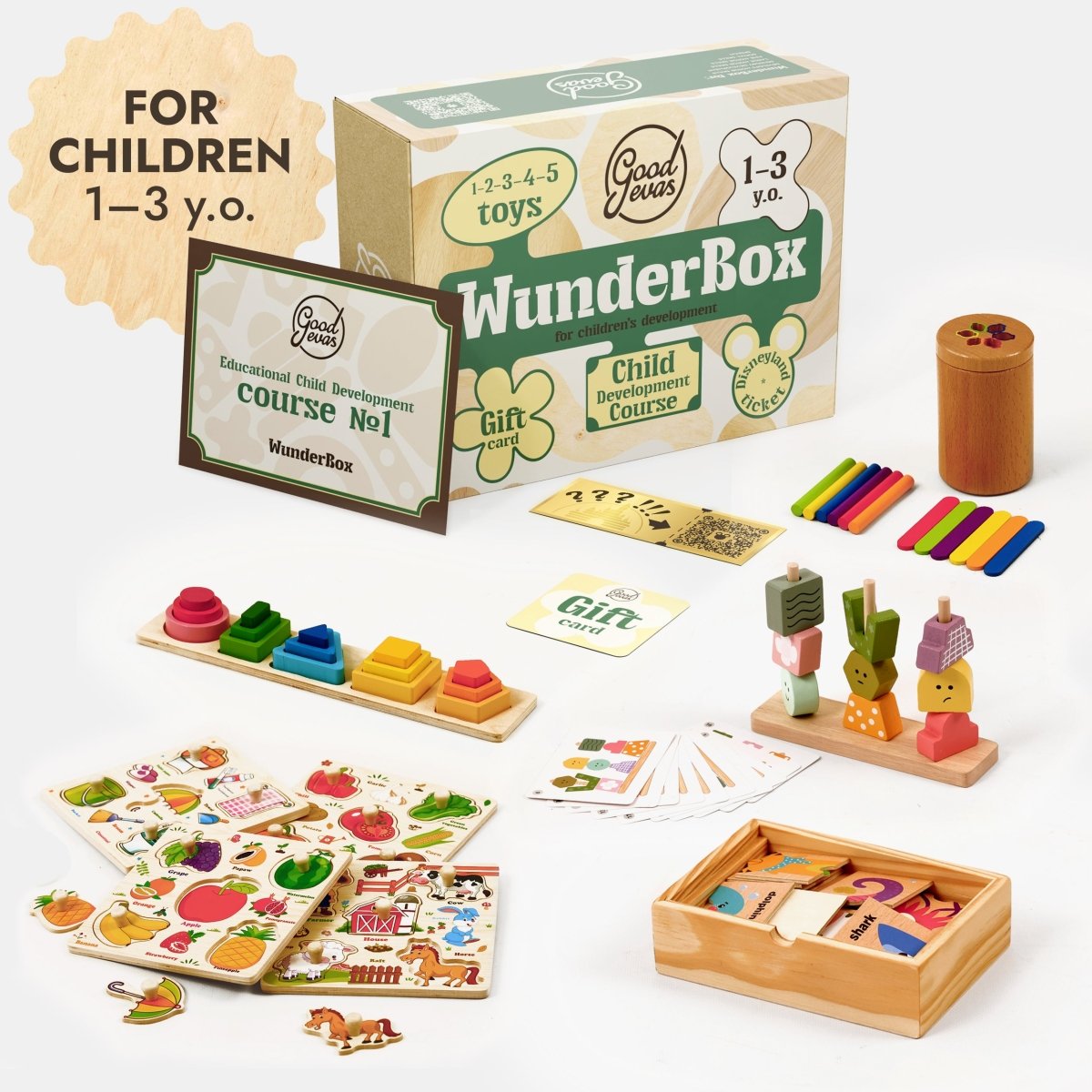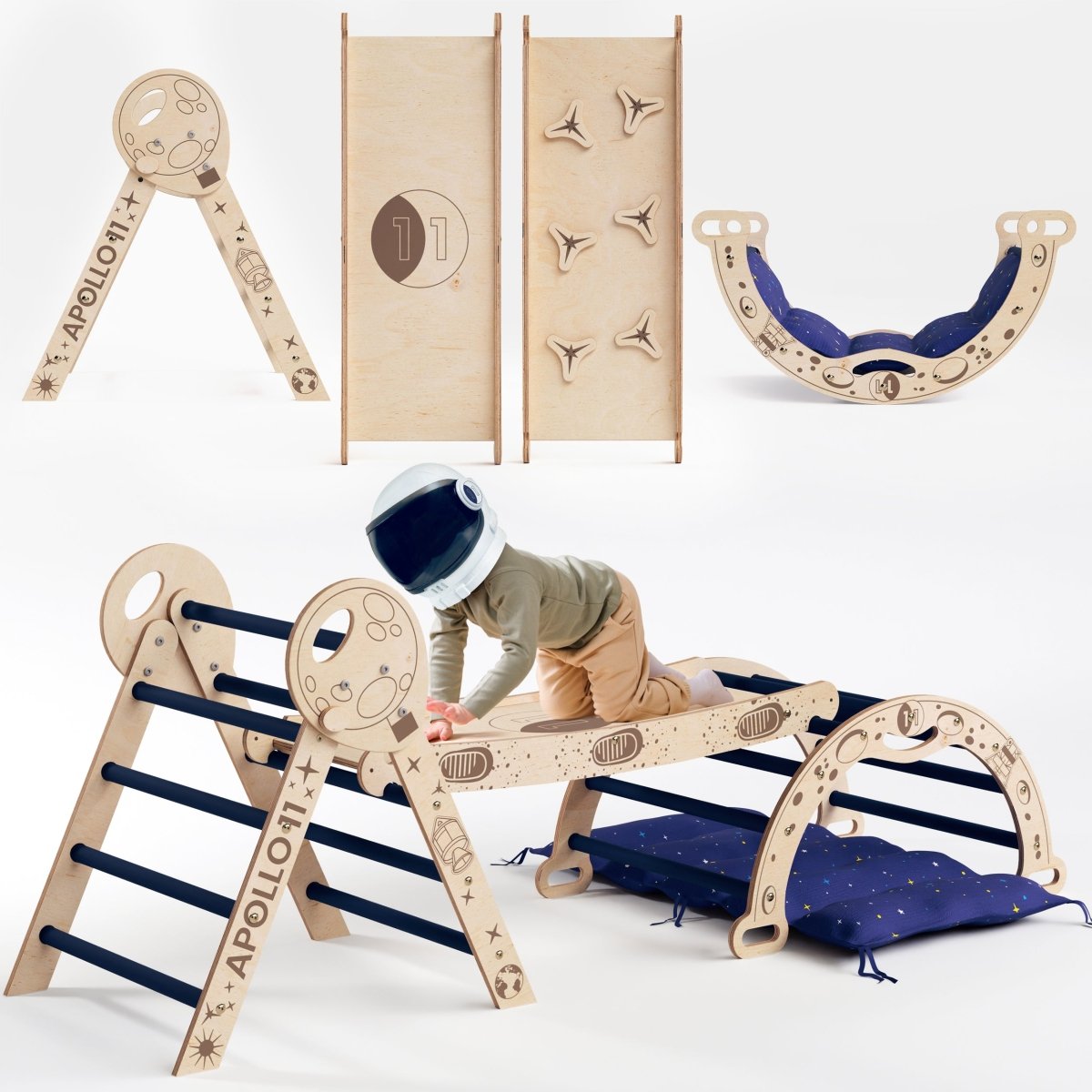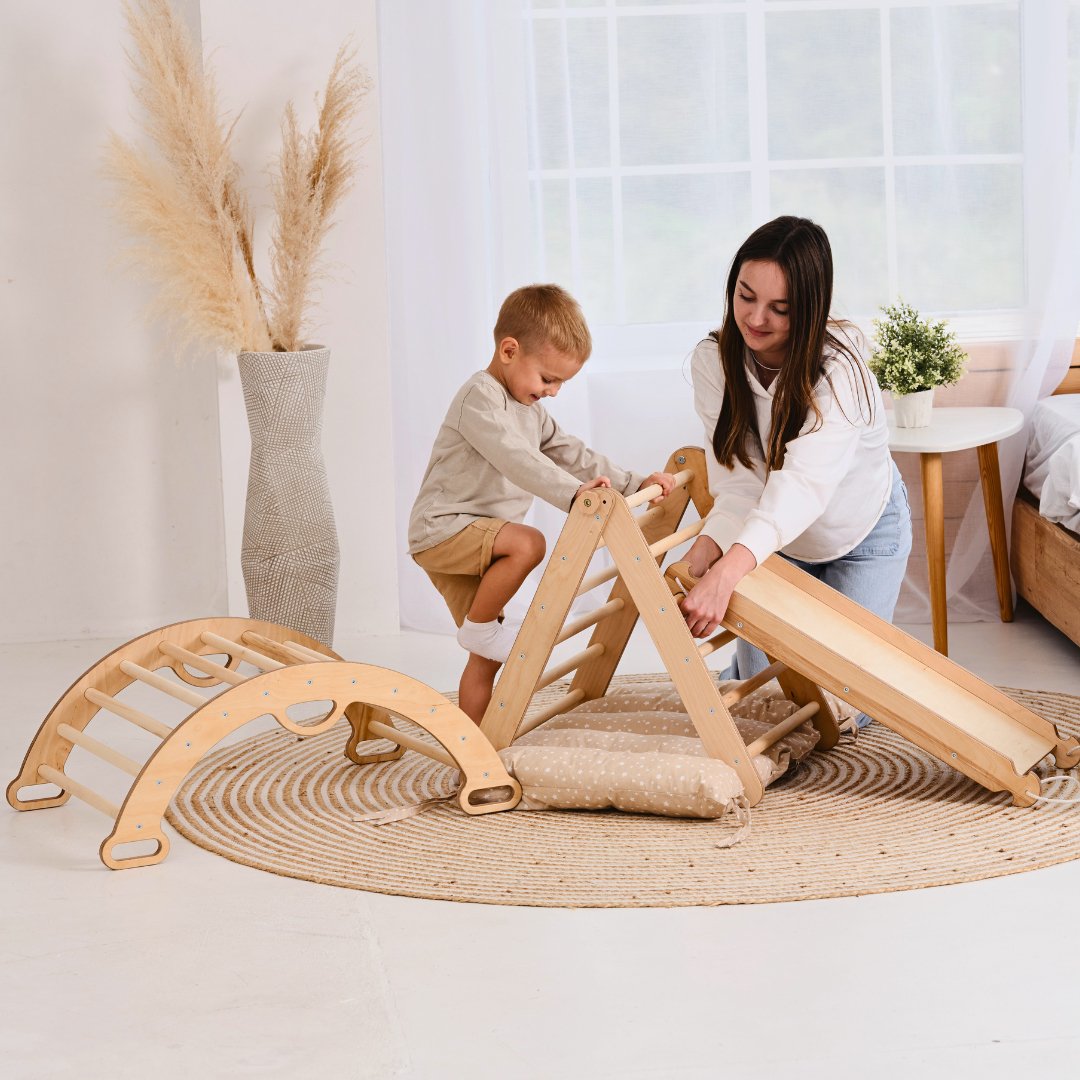How does the use of Montessori toys contribute to the development of emotional intelligence in children?
Introduction to the Concept of Emotional Intelligence
Step into a world where play becomes a profound force for growth – the realm of Montessori toys and emotional intelligence. As parents, we are all dedicated to nurturing our children's minds and hearts, and in this pursuit, Montessori toys emerge as exceptional companions. These meticulously designed toys hold the key to unlocking a child's innate potential and understanding of emotions. In this article, we will dive into the realm of emotional intelligence and its intricate connection with Montessori toys, especially those that foster teamwork and collaboration. Join us as we delve into the captivating interplay between play, empathy, and the cultivation of well-rounded individuals!
Empowering Education: Understanding the Montessori Philosophy

Source: Wikipedia.com
At the heart of Montessori education lies a transformative philosophy that celebrates the innate curiosity and boundless potential of every child. Developed by Dr. Maria Montessori, an Italian physician and educator, this theory embodies a holistic approach to nurturing young minds. What sets Montessori apart is its belief in the child as an active participant in their own learning journey, rather than a passive recipient. This perspective resonates deeply with parents seeking an educational philosophy that aligns with the natural development of their children.
Central to the Montessori theory is the concept of ‘prepared environments’. Montessori environments are meticulously designed to stimulate exploration, encourage independence, and support the child's intrinsic drive to learn. These environments house a meticulously curated selection of Montessori toys, each serving a specific developmental purpose. As parents, this approach invites us to reconsider the role of toys in our children's lives – not as mere distractions, but as tools that shape their cognitive, emotional, and social growth.
Montessori toys, often crafted from natural materials, draw children into purposeful play. Their minimalist design emphasises simplicity, allowing children to focus on the inherent qualities of the toys. This minimalist aesthetic isn't about deprivation, but rather about creating space for creativity and imagination to flourish. As you contemplate gifts for your little ones, consider the beauty in providing toys that inspire genuine engagement and exploration.

Source: Lowstressmotherhood.com
One of the cornerstones of Montessori theory is the idea of self-directed learning. In a world filled with structured routines and adult-led activities, Montessori empowers children to take charge of their learning process. Montessori toys facilitate this by offering open-ended opportunities – puzzles that don't have a single "right" solution, building blocks that invite endless configurations, and sensory activities that ignite wonder.
What is Emotional Intelligence?
In child development, emotional intelligence emerges as a centrepiece for building resilient, well-rounded individuals. Rooted in the ability to perceive, understand, and manage emotions, emotional intelligence transcends traditional academic measures, offering a profound skill set that extends into every facet of life. As parents, we strive to equip our children with tools that pave the way for meaningful relationships, self-awareness, and effective communication – and that's where the concept of emotional intelligence takes centre stage.
Emotional intelligence is the vital bridge between intellect and emotion. It's the art of recognizing one's feelings and those of others, and using this awareness to navigate the intricate landscape of human interactions. Imagine your child understanding their own frustrations, celebrating their joys, and showing empathy toward their peers' struggles – these are the building blocks of emotional intelligence, and they resonate profoundly in personal and social growth.

Source: Cadey.co
In the realm of parenthood, emotional intelligence is a cherished gift we bestow upon our children. Just as we teach them to read and write, we can nurture their capacity to decipher emotions and express them in healthy, constructive ways. This skill set forms the foundation of self-confidence, resilience, and harmonious relationships.
In a world brimming with information, emotional intelligence is a priceless asset that empowers children to thrive academically, socially, and emotionally. It's the essence of conflict resolution, effective communication, and leadership – qualities that sprout from the fertile ground of childhood.
Exploring the 4 Types of Emotional Intelligence

The Impact of Montessori Toys on Emotional Intelligence
In the captivating realm of childhood development, where every discovery and playful moment lays the foundation for a lifetime of growth, Montessori toys emerge as strong allies. Montessori toys, with their thoughtfully crafted designs, play a unique role in fostering emotional intelligence, particularly in creating opportunities for teamwork and collaboration. These toys are ingeniously designed to be enjoyed in groups, igniting a spark of excitement that comes alive when children engage together. The beauty of Montessori toys lies in their ability to transform solo play into a shared adventure, where young minds come together to explore, learn, and understand. By encouraging children to play side by side, these toys instil the values of cooperation, communication, and understanding from an early age.

Source: Istockphoto.com
For instance, nestled within the array of Montessori treasures, we find the remarkable presence of climbing toys. As children engage with these interactive structures, they embark on a shared expedition that extends beyond physical conquest. The act of clambering up steps, traversing platforms, and descending slides becomes a collective effort, necessitating teamwork and collaboration. In this dynamic context, young hearts learn to navigate the terrain of emotions by observing the expressions and reactions of their companions. A cascade of emotions - enthusiasm, trepidation, determination - pervades the air, and in this rich tapestry, children instinctively attune themselves to the feelings of those around them. A hesitant pause before a descent might be met with words of encouragement from a friend, and jubilant laughter echoes when a daring climb is conquered. These interactions, seemingly simple, lay the groundwork for understanding emotions beyond the surface level. As they witness their playmates' elation, apprehension, and encouragement, young minds begin to connect actions with feelings, forging a link between external expressions and internal states.

Source: Goodevas.com
Climbing frames, in their inviting design, offer more than just physical challenges; they furnish the canvas upon which emotional bonds are painted. Shared accomplishments and joint problem-solving instances form the threads that weave the fabric of empathy. Children who might have been strangers a moment ago soon discover the joy of collaboration, as they strategize and communicate to reach the top together. These experiences become the backdrop against which emotional nuances are understood—a shy smile, a congratulatory hug, a supportive hand on the shoulder.
In the presence of these Montessori-inspired marvels, children not only learn the art of climbing but also ascend the ladder of emotional intelligence. They acquire the tools to navigate social intricacies, interpret nonverbal cues, and offer genuine support. The lessons learned on climbing frames are ones of shared journeys, mutual trust, and the beauty of companionship. With every step they take, children not only elevate themselves on the structure but also elevate their understanding of emotions, making strides towards a brighter, more empathetic future!

Source: Tickleright.com
Final Thoughts
In the symphony of shared smiles and outstretched hands, children are silently mastering the eloquence of emotions – a skill that transcends the realm of academics. Montessori toys hold within them the power to instil empathy, cooperation, and understanding, deftly weaving these virtues into the very fabric of play. This unique potency lies in their capacity to teach through experience, fostering a blossoming of emotional intelligence within every interaction. As these playful exchanges unfurl, a glimpse emerges of a future where our children are not only academically accomplished but also compassionate, empathetic human beings.
Much like languages learned in silence, emotions find their form through experiences. Albert Einstein's indelible wisdom, "play is the highest form of research," echoes this truth. Just as children navigate their surroundings to decode the world, play becomes the laboratory where emotions are dissected and understood. Montessori toys are the instruments through which this research of emotions takes shape, gently guiding our children to a profound understanding of themselves and those they journey alongside. As we nurture these sparks of empathy, may we watch with awe as the flames of emotional intelligence illuminate their path towards a future enriched with harmonious connections, and hearts brimming with compassion.
Sources:
1. “Unlocking Your Childs Development and Emotional Intelligence: How Montessori Toys Can Help” (2023)
https://themontessoritoybox.com/blogs/mtblog/unlocking-your-childs-emotional-intelligence
2. Bradberry, Travis (2014) “Emotional Intelligence - EQ”
https://www.forbes.com/sites/travisbradberry/2014/01/09/emotional-intelligence/?sh=6f187c4e1ac0
3. Rockingham Montessori School “What is Maria Montessori Theory?”
https://rms.wa.edu.au/what-is-maria-montessori-theory/
4. Lillard, Angeline (2007) “Montessori: The science behind the genius”. Oxford University Press.
5. Berk, Laura E. (2012) "Child Development," Pearson.









Leave a comment